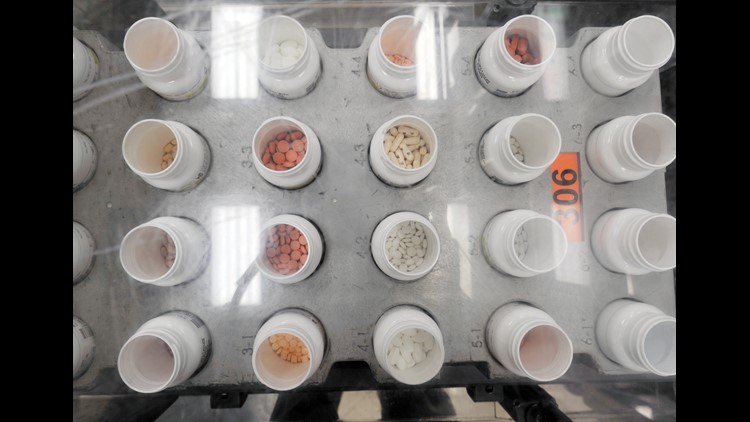President Donald Trump signed two pieces of legislation into law on Wednesday that aim to inform consumers about drug prices.
Both measures, the Know the Lowest Price Act and the Patient Right to Know Drug Prices Act, aim to end the drug industry’s so-called gag orders of pharmacists, which prevent them from discussing cheaper price options with consumers. These price options include discussing whether a medication may be less expensive if using insurance or paying out-of-pocket.
At Wednesday’s signing, the President called the gag clauses “unjust” and said the legislation would lower drug prices that are “way out of whack” and “way too high.”
“It’s called the law of supply and demand. They didn’t want to have that. But now we have that and it’s going to lower drug prices,” Trump added.
Both the President and Health and Human Services Secretary Alex Azar said at the signing that they expect further regulatory action on reducing drug prices in the coming months.
Some states and municipalities have pharmacy gag order bans, but the Patient Right to Know Drug Prices Act, sponsored by Maine Republican Sen. Susan Collins, addresses banning the practice of gag orders on a federal level. The Know the Lowest Price Act, sponsored by Michigan Democratic Sen. Debbie Stabenow, prohibits Medicare drug plans from putting a gag clause on a pharmacy in their contracts.
Collins and Stabenow were present at Wednesday’s signing, as well as Tennessee Republican Sen. Lamar Alexander, Louisiana Republican Sen. Bill Cassidy, Deputy Attorney General Rod Rosenstein and National Economic Council Director Larry Kudlow.
Some pharmaceutical industry experts say that although eliminating the gag clause is step toward consumer transparency, it doesn’t address the issue of lowering actual drug costs, making it unclear how much of a tangible effect the legislation will have.
The President has frequently expressed his frustration over rising drug prices, and in May, he laid out his vision for increasing competition, reducing regulations and changing the incentives for all players in the pharmaceutical industry.
The administration released a 44-page blueprint of the plan, entitled American Patients First, aiming to increase competition and improve the negotiation of drug prices, as well as reduce consumers’ out-of-pocket spending on medicines and create incentives to lower list prices.
Ending the pharmacy gag orders was included the plan, as well as speeding up the approval of over-the-counter medications and asking the Food and Drug Administration to require manufacturers to include prices in their TV ads.
A gag order on a pharmacy is frequently brought on by clauses in contracts with pharmaceutical benefit managers, which manage most of our nation’s prescription drug programs. The benefit managers negotiate prices with drug companies on behalf of insurance companies and other payers and then share those prices to retail pharmacies. They also negotiate rebates from manufacturers and discounts from drugstores. If pharmacists violate the gag rule, they risk losing their contract with the pharmaceutical benefit manager.
Daniel Nam, executive director of federal programs at America’s Health Insurance Plans, told Kaiser Health News that gag orders on pharmacies are becoming less frequent because these clauses are “not something they are incorporating into their contracts.”
Mark Merritt, president and CEO of a lobbying group for pharmaceutical benefit managers, the Pharmaceutical Care Management Association, told the publication that these clauses are “very much an outlier.”



